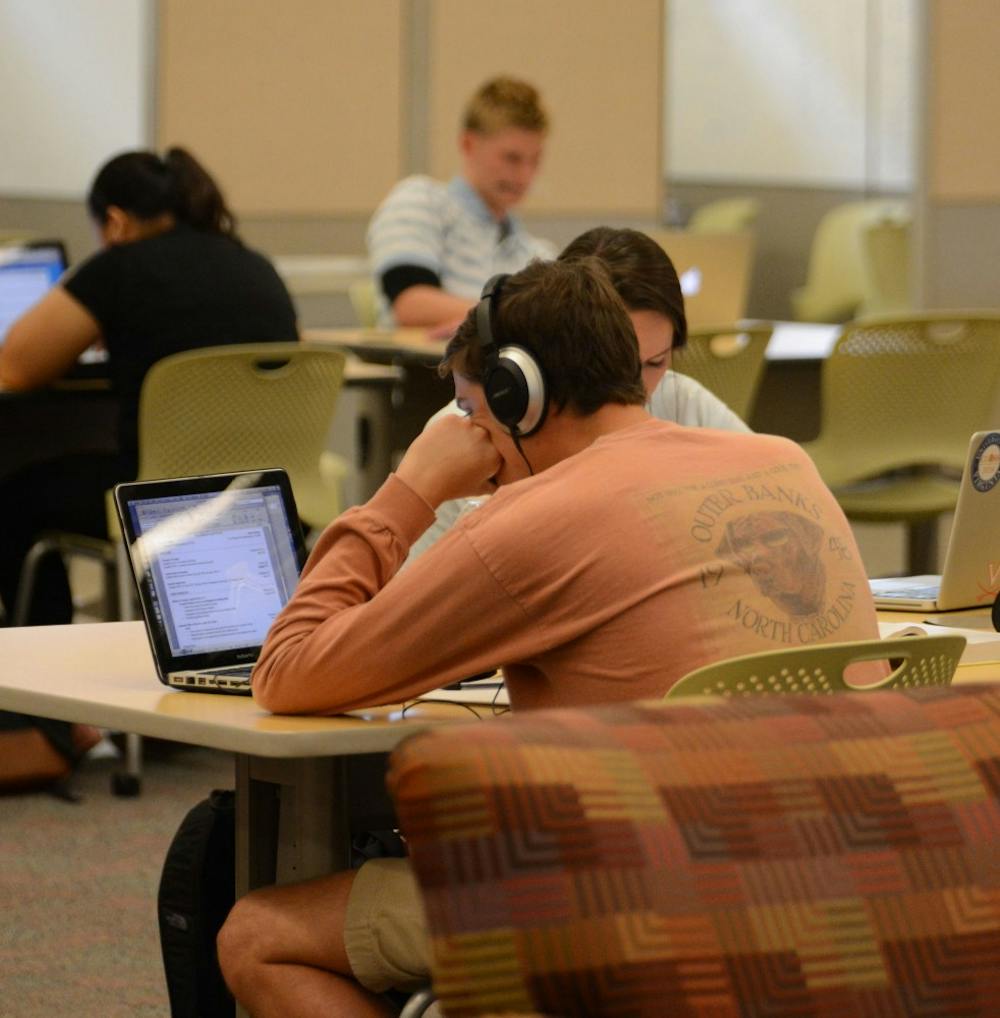Students who work multiple on-Grounds jobs reported the University does not adjust its salaries either for inflation or increases over time in everyday prices.
Student wages appear to be about 18 to 20 cents lower per hour than if they were adjusted for inflation, on average — consistent across various University jobs, including teaching assistants, lab assistants, University Access Control employees and University Intramural-Recreational Sports employees.
Fourth-year Engineering student Jon Maki has worked for the University as a teaching assistant for Introduction to Embedded Systems since fall 2013, earning a $9.50 per hour salary throughout the entire period.
According to the online Consumer Price Index Inflation Calculator from the U.S. Bureau of Labor Statistics, the $9.50 Maki earned in 2013 would have the purchasing power of $9.70 in “2014 dollars.” That gap amounts to about $30 a semester for an employee working 10 hours a week throughout the semester.
Second-year College student Andrew Michael and fourth-year student Nick Roane also are experiencing a decrease in purchasing power of their wages. Roane works as a physics lab assistant, while Michael works for University Access Control.
Michael has received a wage of $10 per hour since he started working as a lockshop and key room assistant in 2013. Likewise, Roane has earned a wage of $8 per hour for his position. Adjusted for inflation, these wages would would be $10.21 per hour and $8.17 per hour, respectively.
University spokesperson Anthony de Bruyn said in an email this is consistent with the policy for University employees.
“Neither the University (nor the state) do cost of living increases,” de Bruyn said. “University Staff and faculty receive merit-based increases, based on performance, as funding allows.”
Various departments in the University also provide merit based salary-increases, which employees can earn with a higher level of experience.
For example, student managers for University athletic teams receive a raise for each additional year they serve as managers. Athletics pays a first-year manager $500 per semester, but a second-year manager $750 per semester.
A second-year College student who works for the University Transit System, who asked to remain anonymous to avoid any conflicts related to work, said Transit System employees are eligible to receive various wage increases throughout their time as UTS employees, though none are attributed to the cost of inflation.
“My current wage is $11.20 per hour,” the student said. “I received a $0.20 raise after last semester for my performance. I received a $0.50 raise this semester for participating in the Recruitment and Retention committee, and another for being promoted to Dispatcher.”
The University Transit System pays bus drivers a starting salary of $10 per hour. Though this is an increase from past years, the student was not under the impression this was related to inflation.
“I was told that the change to a higher starting wage was prompted by lack of applicants, so I doubt it had anything to do with inflation,” the student said.







